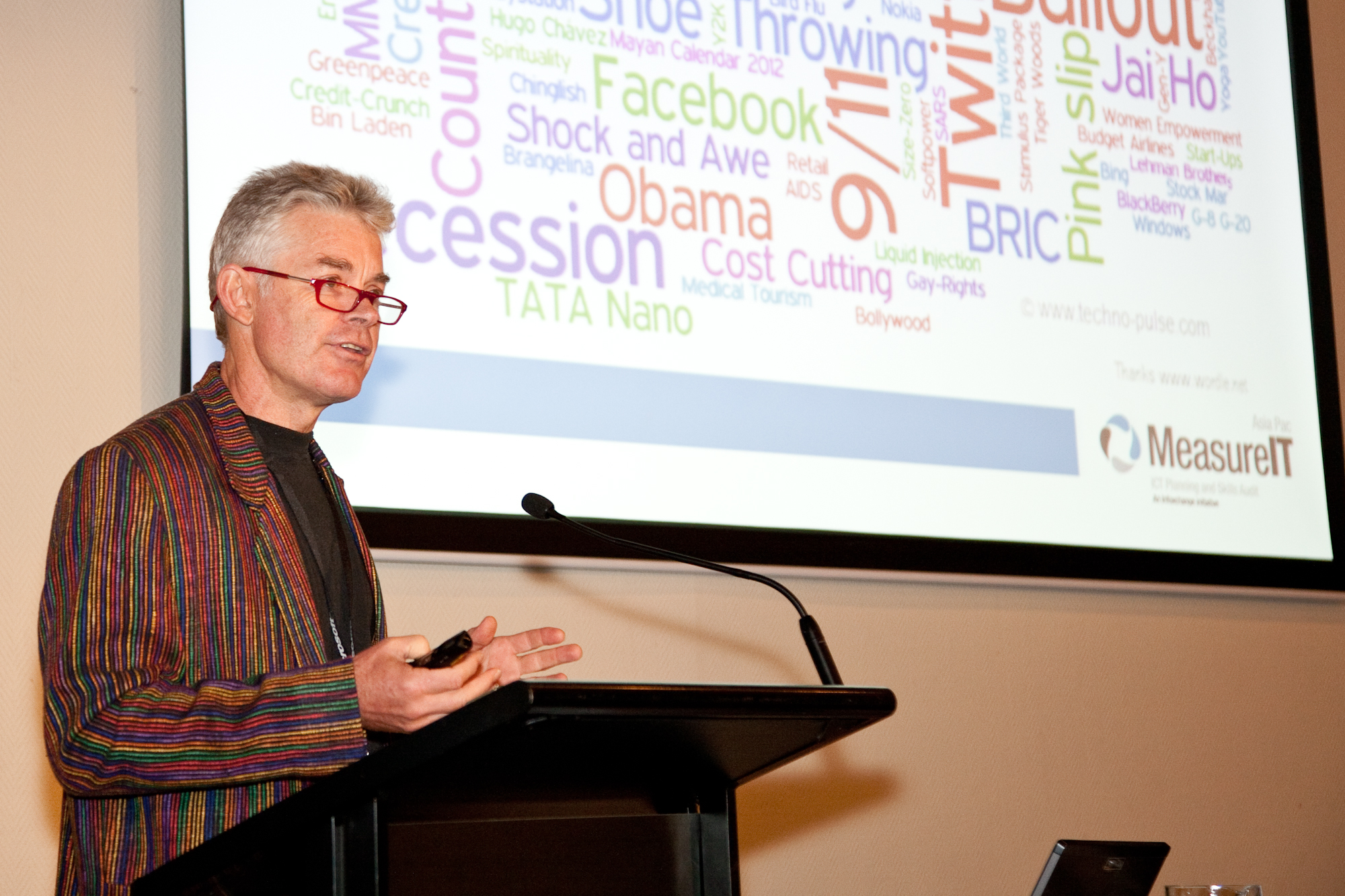NGOs going into the cloud
The day to day operations of NGOs can be challenging, especially when disasters strike. To help NGOs improve operations, Microsoft hosted a series of workshops under the Connecting Communities forum aimed at building their Information Technology (IT) capabilities. The most recent forum took place in Christchurch on 29 February and was co-organized by the Social Development Partners. Over 100 NGO representatives attended.
 One by one, participants take the stage to share real life IT lessons.
One by one, participants take the stage to share real life IT lessons.
At the forum, cloud technology was a key motif, and discussed as the way forward for NGOs. When the 2010 earthquake destabilized Christchurch’s telecommunications infrastructure, NGOs such as the Children Cancer Foundation (CCF) suffered. Luckily, the CCF was already operating on a cloud platform prior to the earthquake and had experience using Microsoft® SharePoint® Online, Microsoft® Exchange Online and Microsoft® Lync®. With access to the web, they were able to tap on these Microsoft technologies to add virtual offices to their network of 22 branches, and continue to assist families from remote locations.
Other NGOs like the Citizens’ Advice Bureau (CAB), an organization that helps promote positive social change among citizens, also benefited from the cloud. The CAB had recently completed New Zealand’s largest Customer Relationship Management (CRM) deployment. However, it had two of its Christchurch bureaus red-stickered after the major earthquake –flagged as architecturally unsound buildings that needed to be checked by engineers first before staff could work there again. To remedy this, the CAB redirected calls from that location to other bureaus all within a matter of days. This would not have been possible without the use of cloud computing.
A similar story took place at the Christchurch Women’s Refuge. With just 10 full-time staff, all they had was an in-house server, hardware and various software versions of Microsoft® Office with no remote email access or shared calendars. Their building was red-stickered, and the only way to revive operations was to go back to the danger zone to retrieve the physical equipment and set up temporary offices. However, sporadic power shortages disrupted work productivity. And to Christine Wallace, the Office Manager at the Christchurch Women’s Refuge, this was a sign to switch to a more accessible IT infrastructure. She shared, “We are now considering other major projects such as moving our database to the cloud, collaborating and data-sharing with partners and moving to a paperless office scenario.”
With the help of cloud computing, these organizations were transformed from being offline to optimized. For the non-profit sector, the benefits cannot be more important as human lives are at stake.
“We are now considering other major projects such as moving our database to the cloud, collaborating and data-sharing with partners and moving to a paperless office scenario.”
- Christine Wallace, Office Manager at the Christchurch Women’s Refuge